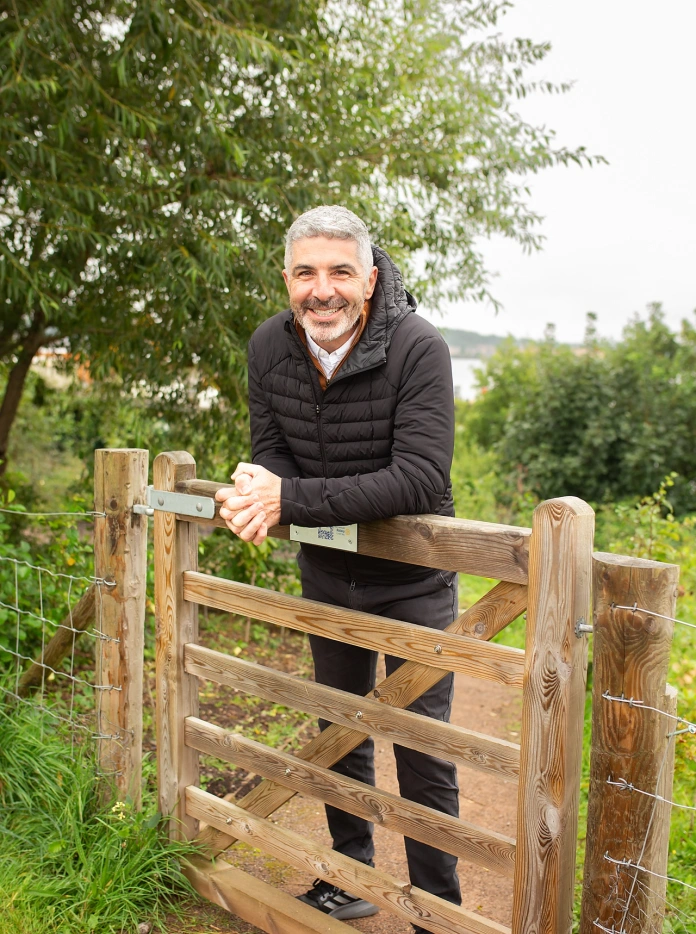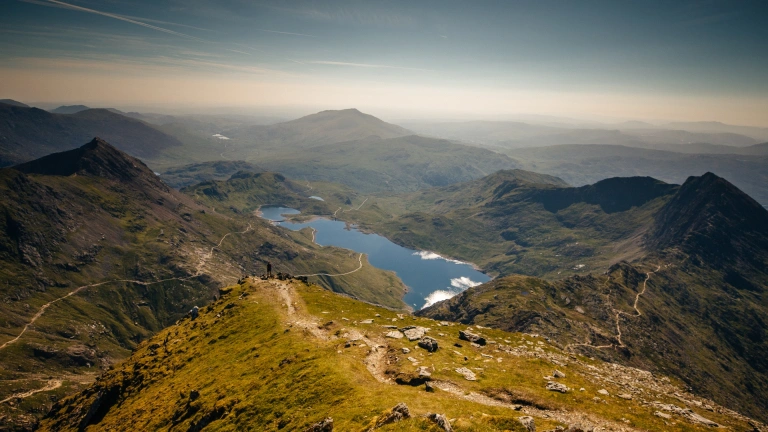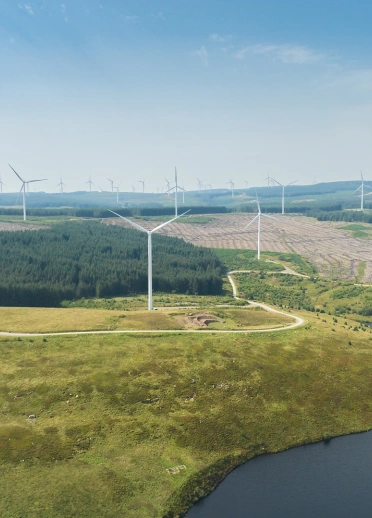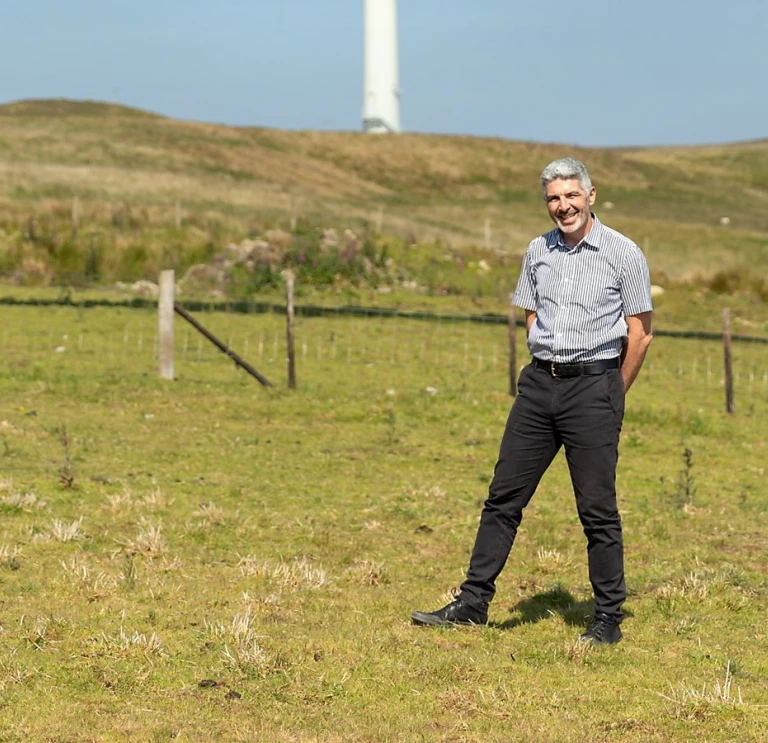In 2015 Wales passed a new law, the Well-being of Future Generations (Wales) Act, that has caught the imagination of countries across the world. It offers a huge opportunity for us to make a long-lasting, positive change to the way we do… well, everything.
The person responsible for ensuring we hit the goals set out in this pioneering act is Derek Walker. Having previously served as the CEO of Cwmpas, the UK’s largest co-operative development agency, Derek took over the role of Future Generations Commissioner from Sophie Howe (the first person to hold the position) in March 2023.

Making changes
Imagine a person born 50 or 100 years into the future. How is their life going to be made worse or better by what you do today? In Wales, that’s a question everyone who works for councils, Welsh Government, health boards and other public services is obligated to consider as part of their decision-making process.
In 2015, we became the first country in the world to legislate to protect the interests of future generations with the Well-being of Future Generations Act.
As the second ever Commissioner, I’m charged with making sure our public bodies are doing the best they can to make joined-up, long-term decisions, so that we live better lives and leave a livable planet behind. I’m essentially the guardian of a law in Wales that protects our environment and our children and grandchildren.
It’s already begun to yield positive results for us. It helped to create a 10-year national healthcare strategy, focusing on preventative measures like social prescribing (connecting people to activities, groups, and services in their community to meet the practical, social and emotional needs that affect their health and wellbeing).
It has influenced a revamp of GCSEs, and a new purpose-driven curriculum that has an emphasis on mental health and developing ethical, well-rounded young people, who are taught eco-literacy from an early age.

We have also switched our evaluation process to one based on well-being, rather than GDP. So government and public bodies must, by law, deliver decent work opportunities and a low carbon society. We have a new transport strategy, and there’s a plan to move 45% of all journeys taken in Wales to either public transport, or to be taken on foot or by bicycle.
When I took on the role of Commissioner, I set out an ambition for Wales to really feel different. I want people to arrive here and for it to feel like a breath of fresh air. For visitors to feel there’s something unique about this country, where we put the well-being of our people and planet first.
After the act launched here, parliaments in Scotland, Ireland and Japan worked on introducing similar types of legislation. And the UN Secretary General endorsed a proposal for a special envoy for future generations, citing Wales as an inspiration.
From Wales to the world — o’n bro i'r byd — the act offers a huge opportunity for us to make a long-lasting, positive change. To avoid further harm from the climate and nature emergencies, and ensure future generations can thrive, we need urgent and transformational change. I believe Wales is the perfect place to show what’s possible.


Finding solutions fast
During his first year in the role of Future Generations Commissioner, Derek launched a new strategy, Cymru Can. Its aim is to up the scale and quicken the pace at which the principles of the Future Generations Act are implemented across government bodies in Wales.
Taking place across a seven-year period, between 2023 and 2030, the new campaign will focus on five main areas within the wider framework of the act, ensuring the legislation: improves people’s everyday lives; responds to the climate and nature emergencies; does more to prevent ill health; works to establish a well-being economy; and protects and enhances culture and the Welsh language.

Closing the gap between aspiration and delivery
People, including myself, are proud of the Well-being of Future Generations Act and our well-being goals – but we must push harder to ensure they’re better implemented to make more positive change in people’s daily lives, now and in the future.
We need urgent and transformational change, with joined-up and long-term solutions to problems like the climate and nature emergencies, inequality and poverty and it’s not happening at the pace and scale we need it to – it’s my job to work with others to find better ways to support that change.
Our seven well-being goals
The Well-being of Future Generations Act set out seven clear goals. And because everything’s connected, our public bodies must work to achieve all of them.
A prosperous Wales.
A resilient Wales.
A more equal Wales.
A healthier Wales.
A Wales of cohesive communities.
A Wales of thriving culture and vibrant Welsh language.
A globally responsible Wales.
Find out more: futuregenerations.wales




